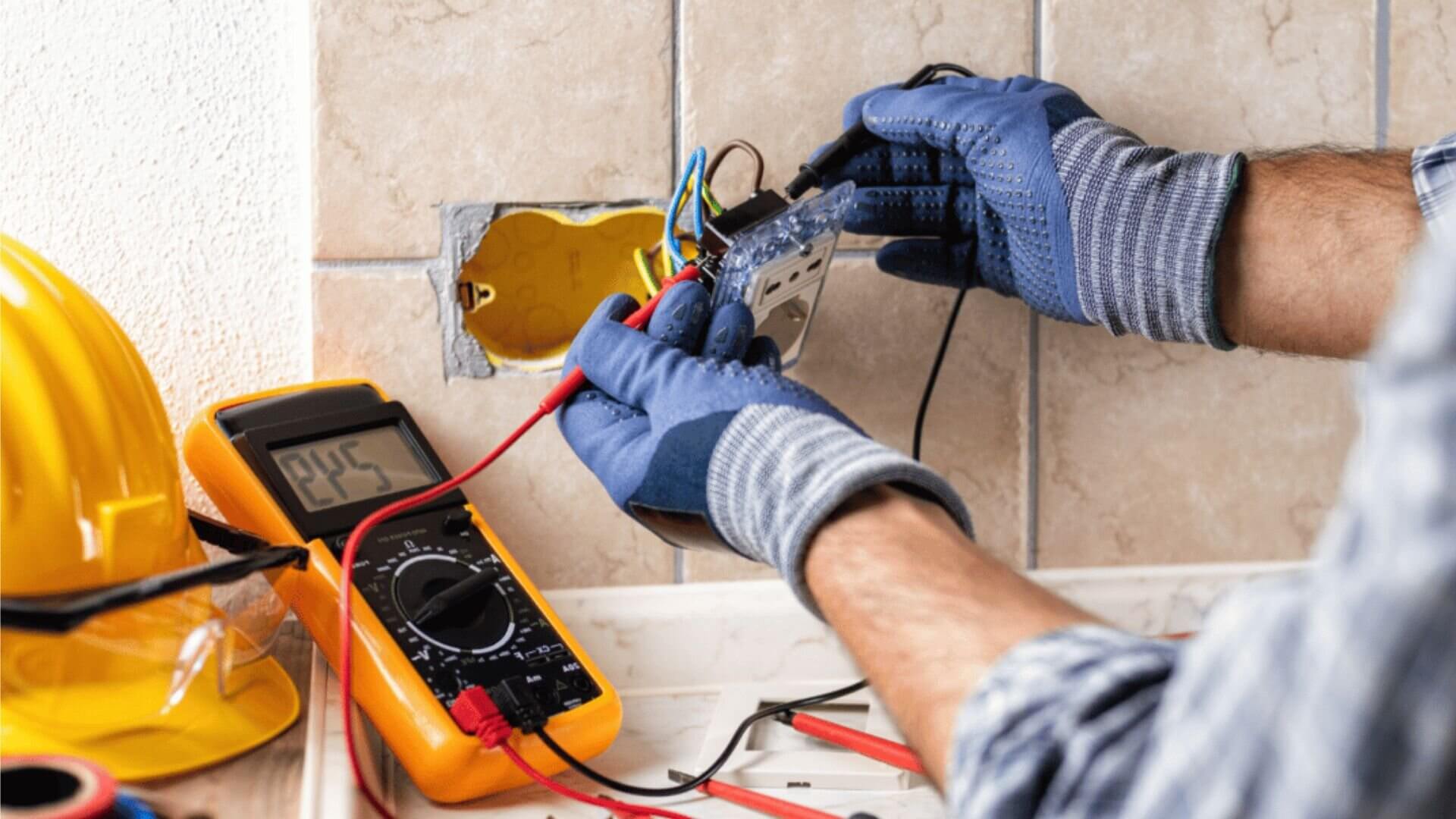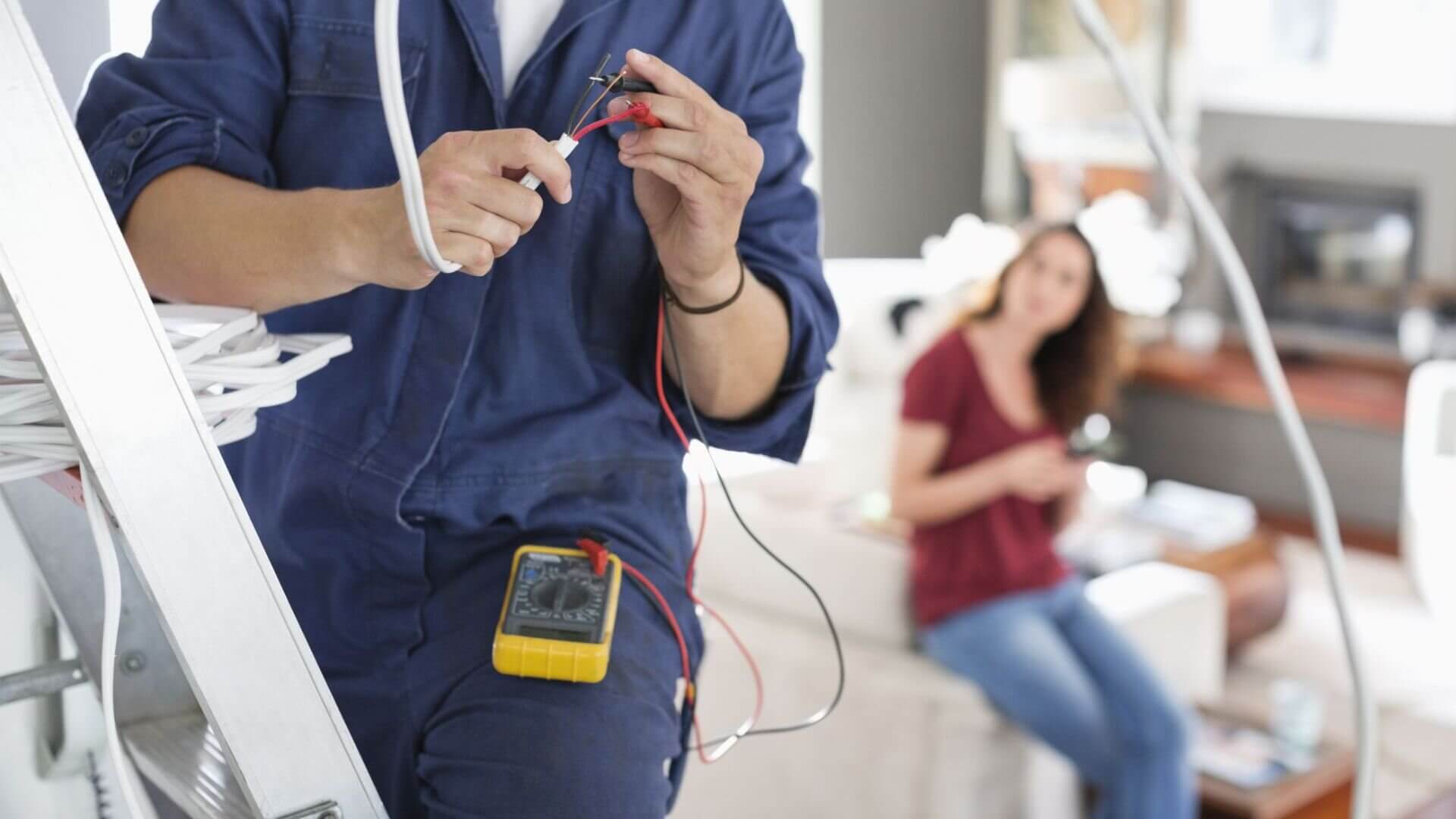At Enersol, our residential electrical services help Gold Coast homebuyers make informed property decisions. Congratulations on embarking on the exciting journey of purchasing a new home! We understand the significance of this milestone in your life. To ensure a smooth and secure transition, it is vital to assess the property's electrical system thoroughly.
This article is here to offer you expert advice and a step-by-step guide for checking the electrical setup when buying a home. Our checklist includes all the crucial aspects like safety tips, code compliance, electrical panels, wiring, outlets, switches, and outdoor systems. By following our tips, you’ll be better equipped to protect your investment and make informed choices.
When buying a home, there are many factors to consider, and the electrical system is a big one not to miss. Our residential wiring guide and guide to identifying common electrical wiring issues provide essential insights. Having a safe and efficient electrical setup keeps your family safe and helps avoid potential hazards and expensive repairs in the future.
We understand that navigating the world of electrical systems might seem daunting, especially if you don't have prior experience or expertise. We have created this comprehensive checklist tailored specifically for homebuyers like you.
Whether you are a first-time buyer or a seasoned homeowner, our checklist will provide the necessary insights and knowledge to assess the electrical system effectively. Let’s get started on this critical journey together!
What Is An Electrical Checklist For Homebuyers?

When buying a new home, it’s essential to prioritise assessing its electrical system. The electrical checklist serves as your go-to guide, ensuring that every aspect of the system is thoroughly inspected. By dedicating time and attention to this crucial step, you can identify potential issues, estimate repair costs, and ensure the safety of your future residence.
Start by understanding the importance of assessing the electrical system when buying a home. It’s not just about functionality; it’s about guaranteeing the safety and well-being of you and your loved ones.
If your electrical system is outdated or not well-maintained, it could lead to serious risks like electrical shocks, fires, or costly repairs. That’s why using our checklist is a smart first step towards a secure and stress-free home.
Safety Considerations And Code Compliance
Electrical code compliance ensures that electrical system installation, repair, and maintenance align with established safety regulations. Adhering to these codes minimises the risk of electrical accidents and ensures that your home operates efficiently.
When assessing the electrical system’s safety, it’s crucial to examine the condition of wiring, outlets, and appliances. Outdated wiring, faulty outlets, or appliances in poor condition can be potential hazards. Our checklist will help you identify signs of damage, wear, or obsolete materials, allowing you to address any issues promptly.
By considering safety considerations and code compliance, you are safeguarding your investment and creating a secure and comfortable living environment for yourself and your family.
Checking Electrical Panels, Switchboards And Wiring

The electrical panel serves as the heart of your home’s electrical system, distributing electricity to various parts of your property and ensuring that all electrical appliances operate smoothly. Conducting a thorough inspection of your switchboard and wiring is crucial for maintaining optimal functionality, capacity, and safety, adhering to standards such as the National Electrical Code (NEC).
- Locating the Electrical Panel: Begin by locating the electrical panel, typically found in the basement, utility room, garage, or on the side of your home. This panel is central to managing the electricity distribution throughout your home.
- Visual Inspection of the Switchboard: Open the switchboard to inspect it visually for any signs of damage. Look for burnt wires, corrosion, or loose connections that could compromise the system’s safety and efficiency. The switchboard’s condition can significantly impact your home’s overall electrical safety.
- Check Circuit Breakers: Pay special attention to the circuit breakers, designed to protect your home by stopping the electrical flow when a circuit exceeds its safe capacity. Ensure that these breakers are not faulty or outdated, which could pose serious risks. Circuit breakers are essential for preventing electrical overloads and fires.
- Examine Wiring: Shift your focus to the wiring itself. Examine the visible wires for signs of wear, damage, or use of outdated materials. Specific issues include exposed wires, loose connections, or frayed insulation. Identifying and addressing these issues early can help prevent further damage and potential hazards.
- Safety Precautions: Please remember not to touch any part of the switchboard during your inspection. Electrical wires, fuses, and panels can be hazardous if mishandled. This should be a visual inspection only, and a qualified electrician should address any concerns identified.
- Consultation with a Qualified Electrician: If any issues are found during your inspection or if you are unsure about the condition of your electrical system, it is crucial to consult with a qualified electrician. They can perform a more detailed inspection and take necessary actions under the National Electrical Code to ensure your home’s electrical system is safe, functional, and up to current standards.
Evaluating Outlets And Switches
Outlets and switches are the gateways that connect your electrical devices and lighting fixtures to the power supply. Ensuring their functionality, proper grounding, and safety is crucial when assessing a home’s electrical system.
Start by inspecting each outlet and switch in the home. Check for any loose connections, damaged faceplates, or signs of overheating.
During the evaluation process, it’s essential to identify potential hazards from outlets and switches. Loose connections, outdated wiring, or inadequate grounding can lead to electrical problems, including electrical fires. If you notice any of these, you will need a professional electrician to repair or replace these outlets.
Outdoor Electrical Systems And Safety
Outdoor lighting, outlets, and electrical panels require careful inspection to ensure proper functioning and safety.
Start by examining the outdoor lighting fixtures and ensure that they are in good working condition. Check for any signs of damage, loose connections, or outdated components. Adequate outdoor lighting enhances the safety and security of your home, allowing you to enjoy your outdoor spaces with peace of mind.
Next, inspect the outdoor outlets and ensure their functionality. Outdoor outlets should be weatherproof and properly installed to prevent moisture ingress or damage. Faulty outdoor outlets pose a significant risk, so it’s crucial to identify any issues and address them promptly.
Finally, evaluate the outdoor electrical panels. These panels distribute electricity to outdoor areas such as pool pumps, spas, or landscape lighting. Ensure the panels are in good condition and free from damage or loose connections.
Outdoor electrical panels must comply with safety regulations to prevent electrical accidents or damage caused by exposure to the elements.
Importance Of Professional Electrical Inspection
While our electrical checklist provides comprehensive guidance, it’s crucial to recognise the value of hiring a licensed electrician for a thorough inspection. The professional electrician brings their expertise, experience, and in-depth knowledge to ensure accurate assessment and recommendations for the electrical system of your potential new home.
Hiring a licensed electrician means gaining access to their deep understanding of electrical systems, code compliance, and hidden hazards. They have the skills to spot issues you might miss in a visual check. Their detailed evaluation helps you make smart decisions based on trustworthy advice.
During the inspection, the licensed electrician will assess the electrical panels, wiring, outlets, switches, and outdoor systems. They will identify potential safety hazards, outdated components, or necessary repairs or upgrades. Their findings and recommendations are invaluable in negotiating repairs with the seller or planning future improvements to the electrical system.
Additional Tips For A Thorough Electrical Assessment

Consider The Age Of The Property
Older homes may have outdated electrical systems that require special attention. Ensure you understand the age of the property and any potential risks associated with older electrical components. Upgrading outdated wiring or panels may be necessary to meet modern safety standards.
Look For Warning Signs
During your assessment, watch for warning signs of electrical issues. These may include flickering lights, outlets that feel warm to the touch, frequently tripping circuit breakers, or a burning smell near electrical outlets or panels. If you notice any of these signs, consult a professional electrician immediately. For flickering or faulty lights, consider replacing them with LEDs.
Assess the Capacity Of The Electrical System
Consider your anticipated power usage and ensure the electrical system can handle it. Evaluate the electrical panel’s capacity and determine if it can support your current and future needs. Upgrading to a higher capacity panel may be necessary for homes with increased electrical demands.
Research Local Electrical Codes
Familiarise yourself with the electrical codes specific to your location. Understanding local regulations will help ensure the property’s electrical system complies with the necessary standards. This knowledge will also be valuable when negotiating with sellers or planning future renovations.
Document Your Findings
Keep detailed records of your assessment, including any issues, repairs, or upgrades needed. This documentation will serve as a reference point and provide a clear picture of the property’s electrical history. It can be helpful for future maintenance, insurance purposes, or when selling the home.
Secure Your New Home with a Comprehensive Electrical Checklist
While our checklist serves as an excellent starting point, we highly recommend seeking the expertise of a licensed electrician for a professional electrical inspection. Their in-depth knowledge and accurate assessment will provide invaluable guidance and recommendations for repairs or upgrades.
If you're ready to dive into your electrical checklist or book a professional inspection, reach out to Enersol Electrical. Our team of trusted experts is on hand to help you, making sure your future home's electrical system is up to the top standards of safety, efficiency, and reliability. Explore our complete residential electrical services for your new home.
Safeguard your investment and enjoy peace of mind by prioritising the assessment of the electrical system. Contact Enersol Electrical today, and let us guide you through this critical process.